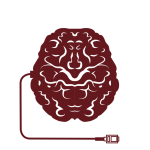Abstract
Objective: The purpose of this study was to provide a broad description of the ef- fects of social distancing in children and adolescents with neurodevelopmental dis- abilities (CAND) and their caregivers in Puerto Rico (PR). This was done by inves- tigating (1) their sociodemographic characteristics; (2) changes in their daily life, education and mental health and (3) their caregiver’s attitudes towards distance education and the emergency-response measures implemented.
Method: A descriptive research study was conducted; 612 parents of CAND living in PR were surveyed from October 23rd, 2020 to June 7th, 2021. Seventy-four of the 78 municipalities of the Island were represented in the sample.
Results: Mostly working mothers (76.6%) of a child (Mage=10) with cognitive and/ or language disorders were represented. The most prevalent necessities found were related to therapies (73.9%) and recreation (63.6%). Virtual services were predom- inant during quarantine, and difficulties balancing work, household, parenting and caregiving were reported by parents. Findings suggest these families are struggling to adjust to distance education, and an increase in symptoms of anxiety and depres- sion were reported in both CAND and caregivers.
Conclusion: Overall, results indicate that CAND and their caregivers are strug- gling to adjust to the changes brought by the pandemic; which is a cause for con- cern. It is recommended that governmental, private and nonprofit organizations should use these findings to support public policy and intervention programs to assist these families.
[pdf-embedder url=”https://neuropsychologylearning.com/wp-content/uploads/pdf/pdf-revista-vol6/vol6-n2-2023-4.pdf”]




